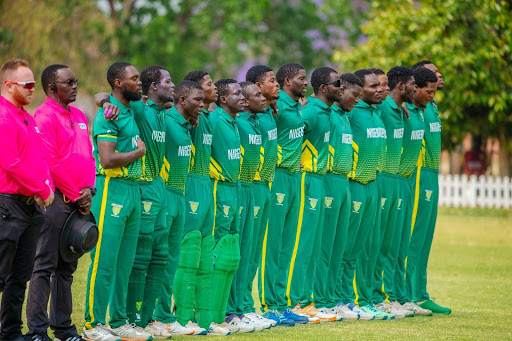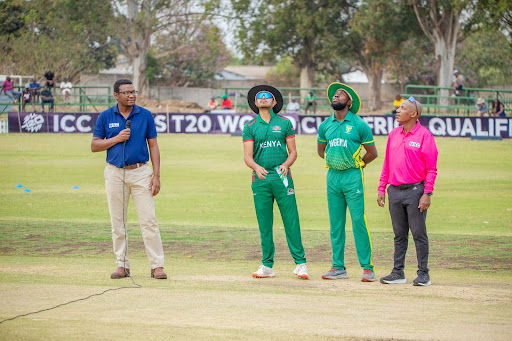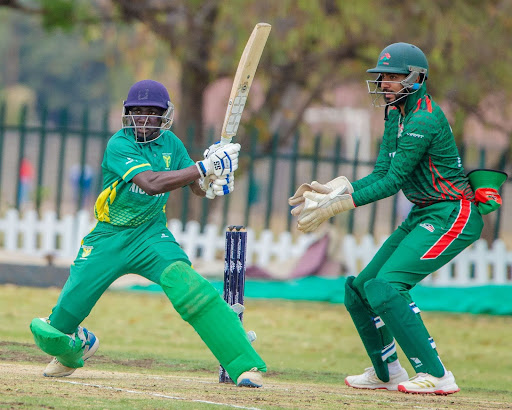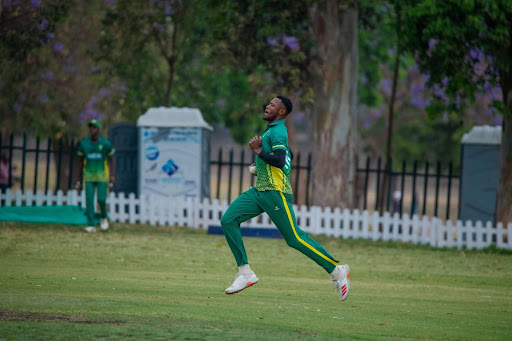
Ken Blanchard, an American author, business consultant and motivational speaker once said that "feedback is the breakfast of champions". Many times, the phrase is often thrown around without fully grasping the essence of it; and some even think that because the leadership expert compares feedback to food, feedback must always be palatable and flattering. The popular quote simply means that receiving constructive feedback is essential for growth and success in any field, allowing individuals to improve by understanding their strengths and weaknesses, and to continuously refine their skills and performance. Just as a hearty breakfast provides energy for proper functioning of the body, embracing feedback, even critical feedback, is crucial for identifying blind spots, making better decisions, and achieving new levels of success.

Just like warriors go to war and return with lessons of war in the form of battle scars, the Yellow-Green heroes from the West of Africa have gone and done battle in the Southern hemisphere and are back home with their scars as proof of their valiance in war. As is necessary with actual wounds from war, the scars of these returning warriors must be cleansed, cared for and evaluated. To assess why the wounds were sustained in the first place and how similar wounds can be avoided in future duels.
Like many times in the past, the Yellow-Greens have always been proud flagbearers of the entire west coast of the continent but their sojourns to the east and south of the continent have always been tricky as they almost always go up against formidable opponents - nations that rank several places above them on the ICC standings. This time is no different. Of the 5 games played by the men from the west, 3 were against teams ranked above them…and those were the 3 games that they lost. In the real sense, the results have gone the way they would have been predicted on paper but was there a chance of an upset?
Their game against Malawi did not only go according to plan, it was dispatched with consummate ease. And to think that the same Malawi upstaged a Kenyan side that was ranked 18 places above them, it could easily have gone sideways for the Yellow-Greens. Next, they went up against continental giants Namibia and there was no shame in losing to the highest ranked team of the continent in the tournament. It was a good way to calibrate themselves against the best in Africa and to see how far they have come since their last outing. Against Botswana and Uganda, it was more of a procession as the results went exactly as they would have been speculated - a win against Botswana and a loss against Uganda.
Sandwiched between those sets of games was the crucial game that would likely have changed the outlook of the entire competition and handed an awesome chance of qualification to the Nigerian side. The ramification of that game was so huge that the result needed to have been decided not on the field of play, but in the minds of all that were involved in it. Kenya had unexpectedly lost against Malawi so it meant that Nigeria was given a golden opportunity to still qualify for the semi finals if they took their chance against the Kenyans.
Now, if you thought that the lifeline given to Nigeria was to defeat Kenya, you would have been wrong because even with a defeat, Nigeria still had a good chance to progress in the tournament. At that point, all the West African side had to do was to keep their Net Run Rate healthier than that of their opponents. A narrower margin of defeat would have assured that they finished above their East African adversaries even if the match had finished in favour of the Kenyans and placed both sides on two points apiece.
At this point, the point of examination we feel should be not just the defeat itself but the manner of it. From the decision at the toss when captain Okpe chose to defend, it appeared that the Nigerian captain knew what he needed to do to scale the hurdle ahead of him and his team - maintain control over his side's scoring rate, set a target and hang the scoreboard pressure on the necks of his opponents. However, two frailties were exposed in that game.

First was the scoring rate. In a game where the run rate was more important than the result itself, scoring at just over a run per ball (7.35) was close to being ignorant of what was required. In contrast, the Kenyan batters cruised at 10.83 to underline the fact that they were in touch with how quickly they needed to score. It is at this point that we thought that maybe, just maybe captain Okpe should not have given them a template to work with by asking them to chase. Kenya may have been uncertain of what a good scoring rate would be if they had batted first. Had the scoring rate for Nigeria been a bit more brisk at the start of the innings, it likely would have laid a proper foundation for the hard hitting middle order to do the required damage.

That aside, during Sulaimon Runsewe’s time at the crease with Isaac Danladi, he was only scoring at a strike rate of 84.37, compared to Danladi’s 112.76. Knowing what damage Runsewe is capable of doing, we feel his rate could have been higher seeing how rapidly the opening batters of Kenya did their damage. Towards the end of the innings also, there were less than 20 runs added between the 18th and the 20th over…meaning less than a run was scored for every delivery at a phase of the game where they needed to score a minimum of 2 boundaries per over. But then, even if Nigeria had scored quicker, they would still have made the chase more structured for the East Africans by setting up a score that they were able to work with.
If a side is unable to accelerate as it should with the bat, then it should not allow its opponent to accelerate also. But what we saw was a rapid burst of acceleration from the Kenyan batters from the very first ball. It is also important to note that all 5 batters that took the game home for Kenya scored at a rate of at least a run per ball. In fact, the top 4 batters scored at the rate of 150, 150, 139.47 and 196.55 respectively. It was a clear display of their awareness of the requirements for not just victory, but most crucially for qualification…and this is largely due to the fact that the Nigerians already handed them the marking scheme. And most likely, the West African bowlers were chasing the wickets when they should have simply starved the batters of runs, frustrating them and forcing them into silly, costly mistakes.

Out of the 7 bowlers that Nigeria used, only 2 of them went for single-digit economy rate. For Kenya on the other hand, only one bowler out of the 7 that they used went for double-digit economy rate. Another example of how not to allow your opponents to score too quickly. Cricket has moved beyond bowling and batting on the field of play. The game these days is first executed in the minds before players even take to the field. Kenya not only scored way faster, they stifled the scoring of the Nigerians with a bowling performance that was as frugal as it should have been.
Another battle scar for the Nigerians is the number of their bowlers who were either cited or suspended for illegal bowling actions, depleting the potency of their attack right in the middle of warfare. However, we feel it should not have been so. These players must have trained with other players and under some certain level of supervision. It should not have been at the world stage that illegal bowling action would be picked up. The people in charge either did not pay enough attention to the bowlers in camp or the players decided on their own to try something different during the games in which they were cited. Whatever the case was, it is clear that something fundamental needs to be fixed urgently to prevent upcoming players from falling into the same habit.
There is absolutely no doubt in our minds that the levels of skill and ability of Nigerian cricketers improved greatly in the last few years. Players have become more technically adept at their craft and the team in general keeps improving in confidence. But as we have been stressing all along, skills alone are insufficient for the modern game. Unlike in other team sports, the input from the coach and technical crew does not extend to match day. From the moment of the toss, the coach takes a back seat and puts all his trust in the captain and hopes that the captain is able to think on his feet in case things do not go according to plan.
The result of this tournament, for us, is not the biggest lesson but the other softer issues that came out of it. For it is those softer issues that have left impressions that will last longer than any score that the players may have put on the scoreboard. There is plenty of work for the backroom and technical personnel of Nigeria and that is for them to focus not only on the one the scoreboard, but on the players in a way that they have never done before.
